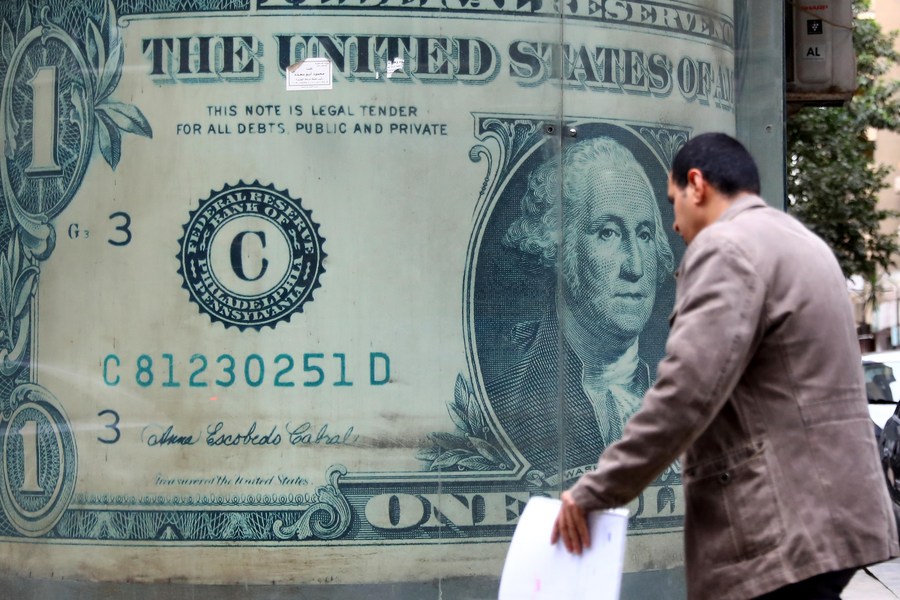
A man passes a foreign exchange office in Cairo, Egypt, Dec. 25, 2022. (Xinhua/Ahmed Gomaa)
TEHRAN, April 9-- A top Iranian security official said on Sunday that reducing the U.S. dollar's influence on regional and international trade will minimize the West's domination over the global economy.
Secretary of Iran's Supreme National Security Council (SNSC) Ali Shamkhani made the remarks in a meeting with the Russian president's aide Igor Levitin in Iranian capital Tehran, according to SNSC-affiliated Nour News.
During the meeting, Shamkhani said the process to reduce the dollar's clout on regional and international transactions has already started, noting that many countries are joining the path.
He described the initiatives finalized between Iran and Russia in the area of monetary and banking transactions as an "effective" method for "dooming the illegal Western sanctions to failure."
Shamkhani expressed satisfaction with the improved level of economic cooperation between Iran and Russia over the past months, highlighting the need to accelerate the joint economic projects' implementation.
He said completing the International North-South Transport Corridor and expansion of the transportation sector cooperation between the two countries constitute an important part of the joint projects.
For his part, Levitin said Moscow is ready to make investments in different Iranian economic sectors, including those pertaining to the steel, oil and petrochemical industries.
Commenting on the numerous bilateral visits by the two countries' economic and banking officials over the past months, he said favorable ground has been prepared for signing multilateral economic deals and attracting other countries to participate in the lucrative economic projects.
Levitin arrived in Tehran on Friday night for talks with senior Iranian officials, including Iran's First Vice President Mohammad Mokhber and Minister of Roads and Urban Development Mehrdad Bazrpash.
Iran and Russia, both under sanctions imposed by the United States, have been expanding their political and economic relations to counter the U.S. moves.











